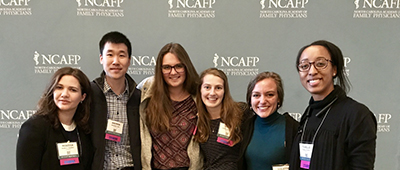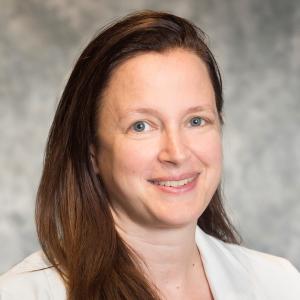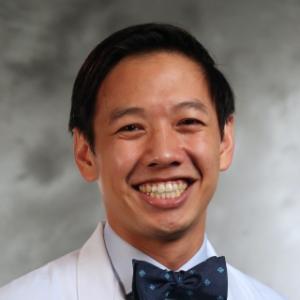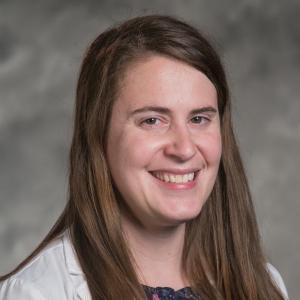Through a variety of clinical and research opportunities, the Department of Family Medicine and Community Health is dedicated to exposing Duke's medical students to the specialties of family medicine and occupational medicine, and the principles of community engagement, social determinants of health and more. The Duke University School of Medicine requires a 16-week longitudinal family medicine clerkship for all MD students in their second year, and fourth-year electives are available in community health, travel medicine, medical informatics and more. Medical students may also partner with faculty research mentors on third-year research projects, in addition to joining the Family Medicine Interest Group.
Leadership
Education
Primary Care Leadership Track
Duke University School of Medicine offers a unique four-year Primary Care Leadership Track to train primary care leaders who can enter residency prepared to engage with communities and practices to help improve health outcomes. This track builds on a longstanding partnership between the Department of Family Medicine and Community Health and the Durham community to understand the causes of health disparities, create a strong research focus on community engagement, and learn how to redesign clinical programs to better serve patient needs at the individual and population level.
Family Medicine Clerkship
As one of the Duke University Medical School's eight core clerkships, second-year medical students spend four weeks in a family medicine clinical rotation.
Courses
See the School of Medicine bulletin for more information on courses.
Required Courses
COMMFAM 205C. Family Medicine
COMMFAM 206C. Primary Care Leadership Track - Family Medicine
Second Year, Two-Week Clinical Selectives
COMMFAM 220C. Occupational Medicine: Prevention and Populations
COMMFAM 225C. Travel Medicine at Duke Student Health
Fourth Year, Clinical Science Electives
COMMFAM 401C. Sub-Internship in Family Medicine
COMMFAM 403C. Community Clinic Leadership Elective - Holton Clinic
COMMFAM 404C. Community Clinic Leadership Elective - Fremont Clinic
COMMFAM 410C. Travel Medicine at Duke Student Health
COMMFAM 423C. Occupational and Environmental Medicine
COMMFAM 433C. Community Health
COMMFAM 435C. Health Promotion and Disease Prevention
COMMFAM 448C. Introduction to Medical Informatics
Research
Third-Year Research Projects
The Department of Family Medicine and Community Health offers various options for students of all levels to be involved in research, including mentorship of third-year medical students. Learn more about these opportunities.
How to Get Involved

Family Medicine Interest Group (FMIG)
Duke’s FMIG chapter is a student-run club that works closely with the Department of Family Medicine and Community Health, as well as the North Carolina Academy of Family Physicians (NCAFP). The group regularly holds events, which include lunch and learn discussions, procedural and skills nights with Duke Family Medicine residents, and social events at faculty member homes. The group has also been involved in attending the annual NCAFP Winter Conference and NCAFP Family Medicine Day. FMIG is a great way to learn more about the specialty of family medicine and connect with both residents and faculty mentors.
Medical students interested in learning more about the specialty of family medicine or joining the group should contact a member of the FMIG executive board:
- President: Niki Young, MS3+, nicola.young@duke.edu
- Vice President: Andrea Augustine, MS3, andrea.augustine@duke.edu
- Treasurer: Evlyn Samuel, MS3+, evlyn.samuel@duke.edu
- Communications Chair: Natalie Sanchez Farez, MS3, natalie.sanchezfarez@duke.edu
- Research Chair: Jonathan Kim, MS4, jonathan.d.kim@duke.edu
- Faculty Advisor: Kenny Herring, MD, kenneth.herring@duke.edu
Grand Rounds
Medical students are welcome to attend monthly department Grand Rounds talks.
Scholarship Opportunities
The Department of Family Medicine & Community Health offers two scholarship opportunities for third-year medical students. Each award provides financial support of $5,000 for students working to address an unmet need in the community. Up to 50% of the awards may be used to defray tuition expenses and expenses incurred while carrying out the project.


